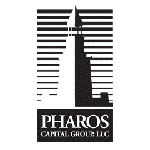
Oncology: Private Equity Investment in Cancer Care
Zach
July 27, 2021
Effective January 16, 2024, Compliance Risk Analyzer has joined VMG Health. Learn more.
August 13, 2019
Written by: Michael Miner and Vincent M. Kickirillo
Dry powder in the private capital markets has been on the rise since 2012 and surpassed the $2 trillion mark for the first time in 2018.[1] With so much capital to deploy, and the rise of asset values since the Great Recession, private equity fund managers have struggled to find attractive investment opportunities in recent years. In search of returns, one industry that private equity firms have continued to frequent is healthcare. Healthcare spending accounted for approximately 17.9% of gross domestic product (GDP) in 2018 and is anticipated to grow 5.5% annually, approaching $6 trillion, or 19.4% of GDP, by 2027.[2] Given the massive market, it is not surprising that dollars have continued to flow to the space, with 316 deals completed in 2018 totaling $63 billion in value.[3] Healthcare businesses that have been of particular interest to private equity firms include physician practices and facility operators. Attractive elements of investments in these segments include the fragmented nature of the market, opportunities for consolidation, and benefits of scale. Dermatology, dentistry, ophthalmology, orthopedics, and radiology have been popular targets of private equity investment in recent years; however, as landgrabs have been made in the aforementioned sub-specialties, investors have begun to tap into new areas to capture return. One such sub-specialty that has experienced strong investor interest in recent months is oncology.
One of the most attractive aspects of the oncology industry to private equity investors is its size and highly fragmented structure. Based on 2017 Medicare Physician Compare data, there were more than 2,200 oncology practices in the U.S. and over 12,000 providers. The same data showed that 76% of oncology practices employed just one to five oncologists. Further, 72% of the practices included in the survey had one service location, while 25% had two to five service locations, and 4% had more than five service locations.[4] The fragmented nature of the industry allows for private equity firms to employ similar roll-up strategies to those already at work in other sub-specialties. These roll-up and consolidation strategies allow private equity firms to create economies of scale and efficiencies in cost structure by centralizing general and administrative functions.
In addition to the fragmented market, the need for oncologists is also growing. A 2014 study found that national demand for oncologists and radiation oncologists is projected to increase 29% by the year 2025 while the number of providers is projected to increase by just 25% over the same period.[5] The projected shortfall in oncology providers is largely a result of increased demand projections related to the growing aging population, earlier cancer detection rates, and increased cancer survivorship. This high demand for oncology services and providers should result in steady cash flows for oncology practices for years to come.
Another attractive quality of the oncology specialty to private equity firms is the low-competition environment. While investors have crowded other sub-specialties (dermatology, ophthalmology, and orthopedics, among others), significant consolidation and roll-ups have not yet made waves across oncology. Private equity firms who are the first movers in the space will have the opportunity to acquire the best assets at more attractive valuations with less competition from other buyers.
Not long ago, few private equity firms were deeply involved in healthcare delivery due to regulatory concerns and an overall lack of experience investing in the industry. These concerns are no longer present today, as many private equity firms have gained expertise in the space and developed investment theses surrounding healthcare over the past decade. While the factors previously mentioned make oncology an attractive target, experienced private equity investors will not rely solely on industry tailwinds to deliver returns. In establishing platform practices or facility operators, private equity firms can create efficiencies through economies of scale not otherwise possible for smaller businesses. Specific areas of improvement often captured by platform-scale practices or operators include: centralization of general, administrative, and other non-care focused business functions, increased use of technology and data management, reporting and tracking of KPIs, and sophisticated marketing and branding efforts. With regards to data management, a major advantage of a platform-scale business is the opportunity to aggregate large amounts of clinical data. Analysis of this data can lead to key findings that help physicians improve care and drive better patient outcomes. Additionally, de-identified oncology clinical data can be sold to biotechnology and pharmaceutical companies who use the data in research as they attempt to develop novel cancer treatments. Another important area of improvement is in the platform’s ability to wield more negotiating power with managed care payors due to its increased size and patient population. More negotiating power for the platform can result in increased commercial reimbursement rates and therefore increased earnings potential. The ability of a private equity-backed platform to step in and take responsibility of business functions not related to patient care is often one of the most attractive benefits of a partnership for physicians. With less focus on non-patient related tasks, providers can increase productivity and deliver better care.
Prior to executing a transaction, perhaps the most important factor to consider for both the private equity firm and physician practice is the alignment of incentives. For the investment to be successful for both parties, physicians and private equity firms must be fully aligned and committed to the partnership. Several factors to consider include: Is the physician better off financially? Compensation structures should ensure physicians are fairly compensated but also motivated to maintain or increase productivity post-transaction. Is the private equity firm delivering the promised value proposition? General and administrative functions must be more efficient and less burdensome for physicians; strategic acquisitions should align with the values of the existing practice. Finally, for the private equity firm, can earnings growth meet expectations and deliver returns? These are just a few questions, among many others, related to alignment that must be thoughtfully considered by all constituents prior to entering a transaction.
Given industry tailwinds and a recent spur of investor activity, the oncology space appears ripe for consolidation. Similar models to those already in place across other sub-specialties should serve as a starting playbook for the successful establishment of platform oncology practices and operators. Long-term success will be dependent on the alignment of incentives within the partnership and strategic execution by the private equity firm.
As previously mentioned, there has been an uptick in investor activity in the oncology provider space over the last 24 months. Below is a summary of the major private equity players in the space as well as a few corporate-backed or standalone platforms that could challenge private equity investors in future bids for acquisitions.[6]
Investor: General Atlantic
Operator: OneOncology


Founding practices of OneOncology include Tennessee Oncology, New York Cancer & Blood Specialists, and West Cancer Center. OneOncology received a $200M growth investment from General Atlantic in September 2018. The platform currently includes 227 providers at 62 care locations.
Investor: Kohlberg & Company
Operator: e+CancerCare


e+CancerCare operates a network of outpatient cancer care centers in the United States. The company offers care services, including diagnostic testing, radiation oncology, medical oncology, and ancillary services. e+CancerCare was acquired by Kohlberg & Company in 2011. Kohlberg recently exited the space when e+CancerCare was acquired by Silver Oak and combined into Integrated Oncology Network in June 2019 (see below).
Investor: Pharos Capital Group
Operator: Verdi Oncology


Pharos’ acquisition of Horizon Oncology in March 2018 marked the launch of Verdi Oncology. Verdi will focus on aggregating high-quality oncology practices that participate in their Oncology Care Model program, a value-based care payment program backed by CMS, and similar value-based care payment programs.
Investor: Tahoe Investment Group
Operator: Alliance Healthcare Services

![]()
Alliance Oncology provides outsourced healthcare services to hospitals and providers. It operates through three segments: Radiology, Oncology, and Interventional. Alliance Oncology services include conventional beam therapy, 3D conformal radiation, intensity modulated radiation, image guided radiation, stereotactic radiosurgery, and more. Alliance was acquired by Tahoe Investment Group in April 2017.
Investor: Silver Oak Partners
Operator: Integrated Oncology Network
![]()

Integrated Oncology Network (ION) provides strategic solutions, development for cancer centers, financing and management services with expertise in radiation oncology operations including accounting, compliance, IT, M&A, physics and dosimetry, and billing & collection. Acquired e+CancerCare from Kohlberg & Company in June 2019.
Corporate-Backer: McKesson
Operator:US Oncology
![]()
![]()
U.S. Oncology operates a network of integrated community-based oncology practices in the United States. It provides medical oncology, hematology, radiation oncology, gynecologic oncology, urology, oncology surgery, and other specialties. US Oncology was acquired by McKesson in November of 2010 and expanded its reach with the acquisition of Vantage Oncology in February 2016.
Corporate-Backer: n/a
Operator: 21st Century Oncology

21st Century Oncology develops and operates radiation therapy centers. The company provides radiation therapy services, including treatment for deep-seated, head/neck, breast, and skin and surface tumors for cancer patients.
Corporate-Backer: n/a
Operator: Cancer Treatment Centers of America

Cancer Treatment Centers of America owns and operates cancer care hospitals and outpatient care centers. It offers medical oncology, surgical oncology, radiation oncology, hematologic oncology, and neurosurgery services. Cancer Treatment Centers of America was founded in 1988.
As evidenced by recent investor activity, the oncology industry provides interesting opportunities for consolidation. Based on the fragmentation of the market and increasing demand related to patient population trends, the industry is poised for investment and growth. We expect the oncology transaction environment to be very active in the coming years as private equity firms seek to continue to deploy capital within the healthcare sector while corporate buyers look to remain competitive in the oncology space.
[1] Prequin – Private Equity Dry Powder Factsheet
[2] Centers for Medicare and Medicaid Services (CMS)
[3] Bain Global Healthcare Private Equity and Corporate M&A Report 2018
[4] DOI: 10.1200/JOP.18.00149 Journal of Oncology Practice 14, no. 7 (July 1 2018) e412-e420.
[5] DOI: 10.1200/JOP.2013.001319 Journal of Oncology Practice 10, no. 1 (January 1 2014) 39-45.
[6] Capital IQ

Optimizing Oncology Services: A Case Study in Strategic Alignment and Growth
A large, regional health system initiates to position itself strategically to offer the community a wide breadth of community cancer...
Learn MoreSubscribe
to our blog